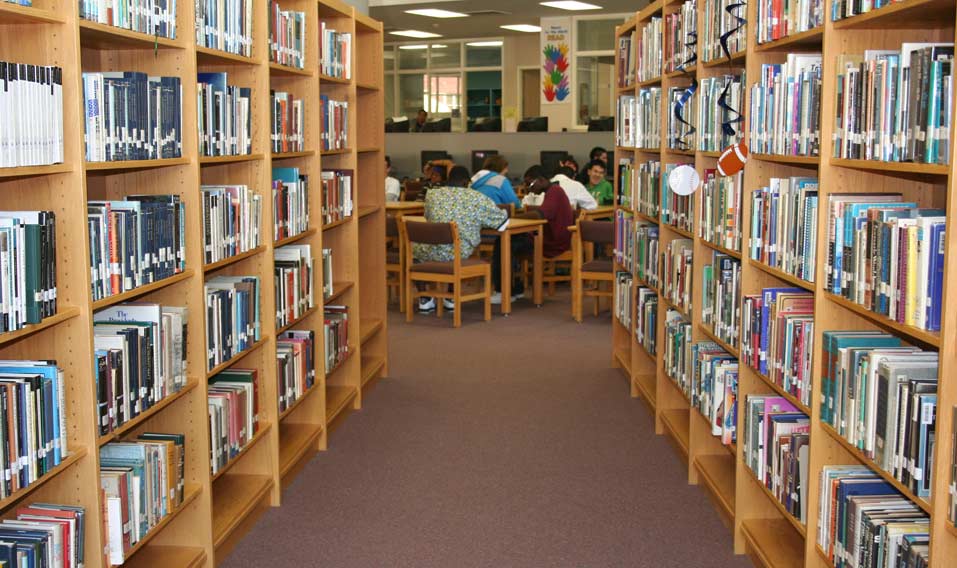Once a favourite spot for learners and scholars, most of the 70,000 plus public libraries in India have now turned into haunted houses with few visitors to grace their premises. This depressing image of the vital institutions may soon witness a change.
The various stakeholders in revitalising public libraries in India under the Ministry of Culture are now eyeing at tapping the interest of the younger generation to reinforce substance and provide better resources to libraries in accordance with the needs of children.
Spearheading this programme is Indian Public Library Movement (IPLM), supported by the Global Libraries initiative of Bill and Melinda Gates Foundation and hosted by NASSCOM Foundation in the Capital.
Consider the Summer Fest for children that IPLM organised recently in partnership with Delhi Public Library. Spanning over a period of one month, this fest aimed at bringing children to libraries in the Capital and engaging them in a host of activities that ranged from storytelling and poetry recitations to painting and stage play performances—all within the four walls of libraries.
While such summer camps are almost customary to institutions like the British Council and the American Foundation in the Capital, it comes but rarely at a public institution like Delhi Public Library. The free-of-cost programme is a boon to the many parents, who cannot afford to send their children to expensive summer retreats that cost anywhere from Rs. 5,000 to Rs. 35,000.
It was thus that hundreds of children joined this programme and came face-to-face with all that the libraries offer. The closing ceremony was attended by Meenakshi Lekhi, Member of the Lok Sabha; Ram Sharan Gaur, Chairman, Delhi Library Board; Deepika Pokharna, Director, Ministry of Culture; Shrikant Sinha, CEO, NASSCOM Foundation; and Shubhangi Sharma, Executive Director, IPLM.
But is one summer camp enough to retain the interest of children and more so, what actually is the underlying factor that has led to this movement of tapping the younger generation?
A voracious reader herself, Meenakshi Lekhi talked about the rapid decline in libraries once. Recalling her younger days, Lekhi said that Delhi Public Library had been a crucial part of her childhood and has gone a long way in shaping her interest in reading.
"More and more children should come to libraries and institutions like IPLM are working to make them all inclusive hubs. As far as the government is concerned, I can assure you that we are very much positive about the impact that libraries can create in building a better future and the Ministry of Culture is taking necessary steps in the direction," Lekhi said.
At present, the Raja Rammohun Roy Library Foundation (RRRLF), is the nodal agency of the government of India to support public library services and systems. Its budget runs into Rs. 100 crore and it supports approximately 34,000 out of the 70,000 public libraries in India under its various schemes. The irony is that despite such funds, images of ill-maintained public libraries— laden with dust and poor-infrastructure —barely prompt a second visit for most library-goers.
Shubhangi Sharma, Executive Director, IPLM, reminded that children are the future of the nation, while also impressing upon the need to invest into inculcating positive aspects into their lives.
"Public libraries can play a very vital role in introducing them to reading at an earlier stage of their lives. We have also seen a decline in people visiting libraries in the past few decades; so if we are able to tap the young population at the right time, it is going to become a lifelong habit for them," Sharma said.
But it is not an easy task. With the advent of internet and digital technologies, more and more information is available online and thus the distance between our children and libraries is ever increasing.
"The first and foremost challenge is digitisation. When so much of information is available at a click on the internet why would children come to libraries? We are therefore trying to equip libraries with modern technology, making them digitised and inclusive places for everybody to visit," she added.
Sharma also said that better infrastructure and facilities are needed in public libraries. Libraries must have enough toilets for both boys and girls, Sharma maintained.
"The government is doing a lot in improving the infrastructure and furniture of public libraries across the country, but a lot remains to be done. We need to revitalise libraries and bring them back into the mainstream as inclusive knowledge and information centres catering to the 21st century information needs," she contended.
As part of the ongoing programmes, dozens of libraries have been digitised with computers and audio-visual centres. There is also special attention towards building "Children's Corner" in public libraries that cater to young audience with its especially curated catalogues and decorations.
—IANS








